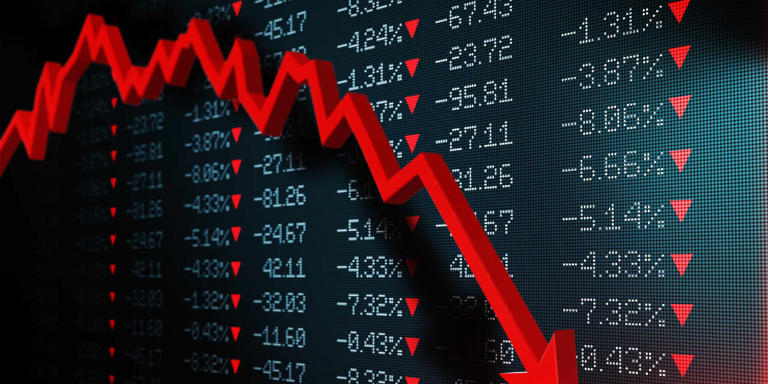In the first seven months of 2024, the stock market experienced notable growth, reflecting a generally positive economic sentiment. However, July marked a significant shift in investor behavior, a phenomenon described by MarketWatch’s Joseph Adinolfi as the “Great Rotation.” This shift saw investors moving away from the previously dominant large technology stocks towards value stocks and small-cap stocks. This change was largely driven by the anticipation of changes in Federal Reserve policy, which influenced investor strategies and market dynamics.
The performance of various broad stock indexes in July provides a clear illustration of this rotation. The S&P 500, which is weighted by market capitalization, saw a modest increase of 1.1% in July, adding to its substantial 14.5% gain through the first half of 2024. The Dow Jones Industrial Average outperformed the S&P 500 in July, with a 4.4% rise, compared to its 3.8% increase through June. In contrast, the tech-heavy Nasdaq Composite Index and the Nasdaq-100 Index both experienced declines in July, dropping 0.8% and 1.6% respectively, despite their impressive gains of 18.1% and 17.0% through the first half of the year.
The S&P Small Cap 600 and S&P Mid Cap 400 indexes, which are also weighted by market cap but are less concentrated at the top, outperformed the S&P 500 in July. The S&P Small Cap 600 surged by 10.7%, although it had been down 1.6% through the first half of the year. The S&P Mid Cap 400 rose by 5.7% in July, adding to its 5.3% gain through June. The Russell 1000 Growth Index, which tracks growth stocks, fell by 4.3% in July, despite a strong 20.3% gain through the first half of the year. Meanwhile, the Russell 1000 Value Index, which tracks value stocks, increased by 4.7% in July, adding to its 5.5% gain through June. This disparity underscores the renewed investor interest in value stocks, which had underperformed for several years.
The sector performance within the S&P 500 further highlights the shift in investor sentiment. The real estate sector led the way in July with a 7.1% gain, despite being down 4.1% through the first half of the year. Utilities followed with a 6.7% increase, adding to its 7.6% gain through June. Financials also performed well, rising 6.3% in July and 9.2% through June. Other sectors such as industrials, materials, and healthcare also saw positive gains in July, while the energy sector continued its upward trajectory with a 2.0% increase, building on its 9.1% gain through the first half of the year.
In stark contrast, the worst-performing sectors in July were communication services and information technology. Communication services, dominated by tech-oriented names like Meta Platforms and Alphabet, fell by 4.2% in July, despite a strong 26.1% gain through June. The information technology sector dropped by 2.1% in July, even though it had surged by 27.8% through the first half of the year. This decline in tech stocks indicates a broader market rotation away from the high-flying tech sector.
The individual stock performances within the S&P 500 also reflect this trend. DexCom Inc. saw the largest decline in July, dropping by 40.2%, while CrowdStrike Holdings fell by 39.5% due to a worldwide computer outage caused by its software update. Other notable decliners included Edwards Lifesciences, Lamb Weston Holdings, and Domino’s Pizza. Even tech stocks like Micron Technology, Super Micro Computer, and Lam Research, which had soared in the first half of the year, pulled back in July.
Focusing on the “Magnificent Seven,” which dominate the SPY portfolio, we see mixed results for July. Apple Inc. was the only one among them to post a positive return, rising by 5.4% in July. In contrast, Microsoft Corp., Nvidia Corp., Alphabet Inc., Amazon.com Inc., Meta Platforms Inc., and Tesla Inc. all saw declines. Notably, Tesla bucked the trend of the first half of the year, gaining 17.3% in July after a 20.4% decline through June.
Overall, the “Great Rotation” in July underscores a significant shift in investor sentiment and market dynamics. The move away from large-cap tech stocks toward value and small-cap stocks reflects changing economic expectations and the potential impact of Federal Reserve policy adjustments. This rotation indicates a broadening of market participation and a potential change in market leadership, signaling a more diverse investment landscape for the remainder of 2024.
